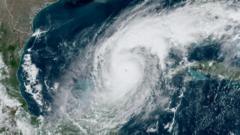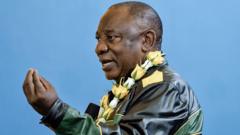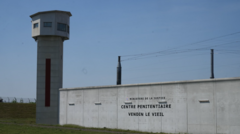Wellington Koo highlights Taiwan's commitment to security and the importance of preparing for asymmetrical warfare, despite uncertainty regarding U.S. support during escalating tensions with China.
**Taiwan's Defense Minister Emphasizes Asymmetric Warfare Amid U.S.-China Rivalry**

**Taiwan's Defense Minister Emphasizes Asymmetric Warfare Amid U.S.-China Rivalry**
In a strategic commentary, Taiwan's defense chief asserts the necessity to enhance the island's military capabilities while relying on U.S. deterrence against China.
Taipei, Taiwan—In an extensive interview on May 22, 2025, Taiwan’s defense minister, Wellington Koo, expressed confidence in the United States as a significant deterrent against potential Chinese aggression toward Taiwan. While acknowledging some skepticism in Taiwan regarding the reliability of U.S. support, especially in light of President Trump’s administration of varying messages regarding military engagement, Koo stressed the critical need for Taiwan to bolster its own defense systems.
"The U.S. has the capability to deter China, but we must prepare our forces for asymmetric warfare," said Koo, who took office a year ago. He emphasized the importance of communicating to Beijing the severe economic and military consequences of any military action against Taiwan, reinforcing the notion that a high price would discourage China from pursuing conflict.
Koo noted that the U.S. and Taiwan share a vested interest in stabilizing the Indo-Pacific region, particularly in the Taiwan Strait. Despite the emphasis on "America first" in Trump's policies, Koo believes the administration recognizes that security in the Indo-Pacific region is a mutual priority.
In response to growing concerns over China’s aggressive posturing, Taiwan has ramped up its defense spending and improved military readiness. Koo remarked, "It is crucial that we make it exceedingly difficult for China to even contemplate military action against us."
As tensions in the region continue to rise, Taiwan's defense minister is adamant about the need for a combined approach of U.S. support and Taiwan’s self-reliance in defense matters, aiming to safeguard the island's sovereignty amid a rapidly evolving geopolitical landscape.























